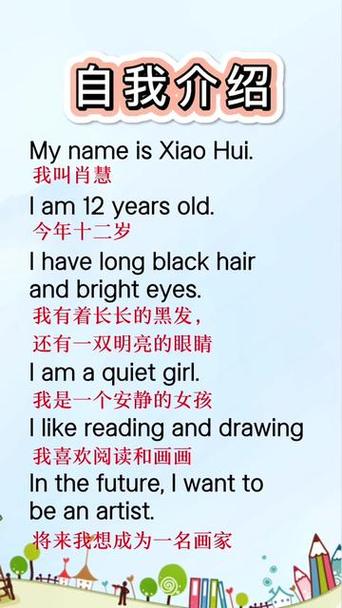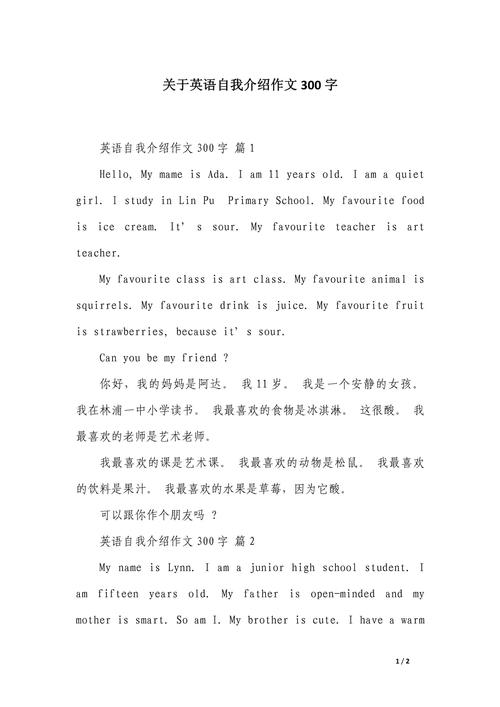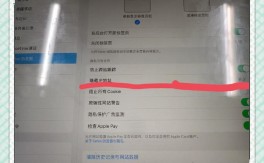介绍自己的身份是英语交流中的基础环节,无论是日常社交、职场面试还是国际场合,清晰、得体地表达身份都能帮助他人快速了解你,并为后续沟通奠定基础,以下从核心要素、场景应用、表达技巧及常见误区等方面,详细拆解“如何用英语介绍自己的身份”。

介绍身份的核心要素
用英语介绍身份时,需根据场景调整信息详略,但核心要素通常包括“基础身份+关联信息+补充细节”。
-
基础身份:最核心的身份标签,如姓名、国籍/籍贯、职业/学生身份,这是让对方快速定位你的关键。
- 姓名:直接用“My name is...”或“I'm...”,注意姓氏(last name/family name)和名字(first name/given name)的区分,“My name is Li Hua, where Li is my last name and Hua is my first name.”
- 国籍/籍贯:用“I'm from...”表达来自国家或城市,“I'm from China, specifically Shanghai.” 若涉及双重国籍,可补充:“I hold dual citizenship of Canada and China.”
- 职业/学生身份:职业直接用“I'm a/an...”,学生身份需说明年级和专业,“I'm a sophomore majoring in Computer Science at Peking University.”
-
关联信息:与身份直接相关的背景,如所属组织、行业、研究方向等,帮助对方进一步理解你的角色。
- 职场场景:“I work as a software engineer at Microsoft, focusing on cloud computing solutions.”
- 学术场景:“I'm a researcher in the Department of Biology, specializing in marine ecology.”
- 社交场景(兴趣社群):“I'm part of the local hiking club, where I organize weekend trips.”
-
补充细节:让介绍更生动的个性化信息,如工作职责、近期项目、兴趣爱好等,避免身份介绍过于单薄。
 (图片来源网络,侵删)
(图片来源网络,侵删)- 职场补充:“In my role, I lead a team of 5 to develop AI-driven tools for healthcare.”
- 兴趣补充:“Besides work, I'm an amateur photographer, especially passionate about landscape photography.”
不同场景下的身份介绍表达
不同场景对身份介绍的正式程度、信息侧重点要求不同,需灵活调整表达方式。
日常社交:简洁友好,突出个性
在派对、朋友聚会等非正式场合,身份介绍以轻松为主,无需过多职业细节,可侧重兴趣或共同话题。
- 基础版:
“Hi everyone, I'm Emma. I'm from Melbourne, Australia, and I just moved here last month. Nice to meet you all!” - 升级版(加入兴趣):
“Hey there, I'm Tom! I work as a graphic designer, but when I'm not sketching, you'll probably find me at the local jazz club or trying to cook Thai food (with mixed results!). What about you?”
职场面试:专业聚焦,强调价值
面试时需突出职业身份与岗位的匹配度,包括职位、经验、核心能力。
- 应届生:
“Good morning, I'm Zhang Wei, a recent graduate from Fudan University with a Bachelor's degree in International Business. During my internship at ABC Company, I led a market research project that identified 3 new customer segments, which increased our quarterly sales by 15%. I'm particularly drawn to this role because of your focus on cross-border e-commerce, which aligns with my academic background and career goals.” - 资深职场人:
“Thank you for having me. I'm Liu Min, with over 10 years of experience in digital marketing, specializing in B2B SaaS companies. Currently, I'm the Marketing Director at Tech Innovations, where I've grown our user base from 50K to 500K in 3 years through data-driven strategies and team leadership. I understand this role requires scaling a new product line, and my experience in go-to-market planning and stakeholder management makes me confident in contributing to your team.”
学术会议:严谨专业,突出研究
学术场合需明确身份(研究者/学生)、所属机构及研究方向,便于同行交流。
- 研究者:
“Good afternoon, everyone. I'm Dr. Rachel Green, a postdoctoral fellow at the Max Planck Institute for Chemistry. My research focuses on atmospheric particulate matter and its impact on climate change. Today, I'll be presenting our latest findings on the transport patterns of Sahara dust across the Atlantic.” - 学生:
“Hello, I'm Chen Jie, a PhD candidate in the Department of Physics at Tsinghua University. My dissertation explores quantum entanglement in superconducting materials, under the supervision of Professor Wang. I'm excited to share some preliminary results from our recent experiments.”
国际场合:跨文化适应,尊重差异
在国际交流中,需注意文化差异,例如部分国家习惯先说名字再说姓氏,或避免过度提及年龄、婚姻状况等敏感信息。
- 示例:
“Hi, I'm Priya Sharma. I'm based in New Delhi, India, where I work as a project manager for a non-profit organization focusing on rural education. It's my first time attending this conference, and I'm looking forward to learning from experts in the field.”
提升身份介绍表达效果的技巧
- 正式程度匹配:根据场合选择词汇和句式,正式场合用“I am”全称、“currently”等词,非正式场合可用“I'm”“kind of”“sort of”等口语化表达(但需避免过度随意)。
- 逻辑清晰:按“基础信息→关联信息→补充细节”的顺序展开,避免信息跳跃。“I'm Maria (name), a Spanish architect (profession) based in Barcelona (location). I specialize in sustainable building design (expertise), and I'm currently working on a residential project that uses 50% less energy (current focus).”
- 积极语气:用主动语态和正面词汇展现热情。“I get to work with amazing teams to develop innovative solutions”比“I work with teams”更有感染力。
- 倾听互动:介绍身份后可反问对方,形成对话。“That's a bit about me—what do you do?”或“I'm curious, how did you get started in this field?”
常见误区及注意事项
- 避免信息过载:初次见面无需罗列所有细节(如小学、毕业年份等),聚焦核心信息。
- 纠正发音和语法:提前练习姓名、专业术语的发音,避免基础语法错误(如主谓一致、时态混淆)。
- 避免负面表述:不要用“just a student”或“only an intern”等自我贬低的表达,应自信肯定身份价值。
- 注意文化禁忌:某些国家(如美国)不习惯在初次见面询问薪资、宗教等,身份介绍中避免涉及敏感话题。
不同身份类型的表达模板参考
| 身份类型 | 表达模板(中英对照) |
|---|---|
| 学生 | “I'm [Name], a [year] [major] student at [University]. I'm particularly interested in [research interest/course topic].” “我叫[姓名],是[大学]的[年级][专业]学生,对[研究方向/课程主题]特别感兴趣。” |
| 职场人士 | “I'm [Name], working as a [Job Title] at [Company]. My main responsibility is [key responsibility], and I've been in this field for [years] years.” “我叫[姓名],在[公司]担任[职位],主要负责[核心职责],从事该领域[年数]年了。” |
| 自由职业者 | “I'm [Name], a freelance [Profession] specializing in [Skill/Industry]. I help clients [achieve goal], and I've worked with [Client/Project examples].” “我叫[姓名],是一名自由职业[职业],专注于[技能/行业],我帮助客户[实现目标],曾参与过[客户/项目案例]。” |
| 创业者 | “I'm [Name], the founder of [Startup Name], a [Industry] startup that [solve problem/mission]. We're currently [current stage, e.g., raising seed funding/expanding to new markets].” “我叫[姓名],是[公司名称]的创始人,这是一家[行业]领域的初创公司,致力于[解决问题/使命],我们目前处于[当前阶段,如:融资中/拓展新市场]。” |
| 退休人士 | “I'm [Name], recently retired from [Profession/Industry]. Now I enjoy [hobby/volunteer work] and love traveling with my family.” “我叫[姓名],刚从[职业/行业]退休,现在喜欢[爱好/志愿工作],也喜欢和家人一起旅行。” |
FAQs
Q1: 在英语面试中,如何介绍自己的身份才能给面试官留下好印象?
A1: 面试中的身份介绍需突出“职业匹配度”和“个人价值”,首先清晰说明姓名、当前职位/身份(如“a senior marketing manager with 8 years of experience”),然后快速关联岗位需求:用“my experience in [skill] aligns with your requirement for [job duty]”建立联系,并辅以具体成果(如“I increased sales by 20% in my last role”),最后表达对公司的兴趣,“I've admired your company's focus on [value/mission], and I'm excited about the opportunity to contribute to [specific project/goal]”,避免背诵简历,用简洁的故事线展现优势,同时保持自信、自然的语气。
Q2: 如果我的名字发音比较复杂,如何在介绍身份时让别人轻松记住?
A2: 面对复杂发音,可采用“发音提示+关联法”:先缓慢说出名字,再提供一个发音相似的简单单词或场景。“My name is Xie Wei—you can pronounce it as ‘Shay Way’, like ‘way to go’!” 或 “It's Liang Chen—‘Liang’ rhymes with ‘young’, and ‘Chen’ sounds like ‘chain’ without the ‘i’.” 可主动解释名字的含义(如“In Chinese, ‘Xie’ means ‘thank you’, so you can think of me as the ‘thank you guy’!”),或用幽默化解尴尬,“Don't worry if you can't pronounce it—my friends just call me ‘Mike’ for simplicity!” 关键是主动降低对方的记忆成本,让对方感受到你的友好和耐心。



